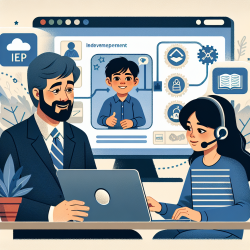Unlocking Potential: Lessons from Community Mobilization for Speech Language Pathologists
In the realm of speech language pathology, especially when working with children, the emphasis on data-driven decisions is paramount. The recent research article titled Community Mobilization to Promote and Protect the Sexual and Reproductive Rights of Women Living with HIV in Latin America offers insights that can be translated into practice for speech language pathologists. While the study focuses on the sexual and reproductive rights of women living with HIV, the principles of community mobilization and advocacy can be applied to enhance outcomes in speech therapy.
Understanding the Power of Community Mobilization
The study conducted by Kendall et al. (2020) highlights the impact of community-led interventions in advocating for the rights of women living with HIV across five Latin American countries. By empowering community leaders with knowledge and resources, the intervention improved personal health behaviors and strengthened advocacy efforts. This approach underscores the importance of collective action and the role of community in driving change.
Applying Research Insights to Speech Language Pathology
As practitioners, speech language pathologists can draw parallels from this research to enhance their practice:
- Empowerment through Knowledge: Just as the study empowered women with knowledge about their rights and health, speech language pathologists can empower children and their families by providing them with information about speech and language development. This can lead to better engagement and outcomes.
- Community Engagement: The study demonstrated the importance of community engagement in achieving advocacy goals. Similarly, speech language pathologists can benefit from engaging with families, schools, and community organizations to create a supportive network for children receiving therapy.
- Advocacy and Collaboration: The collective action in the study led to significant policy changes. Speech language pathologists can advocate for children by collaborating with educators, healthcare providers, and policymakers to ensure that speech therapy is integrated into broader educational and health initiatives.
Encouraging Further Research and Practice
The research by Kendall et al. (2020) serves as a reminder of the power of data and community in driving change. Speech language pathologists are encouraged to explore further research on community mobilization and its applications in therapy. By staying informed and actively participating in research, practitioners can continue to improve outcomes for children.
To read the original research paper, please follow this link: Community Mobilization to Promote and Protect the Sexual and Reproductive Rights of Women Living with HIV in Latin America.










